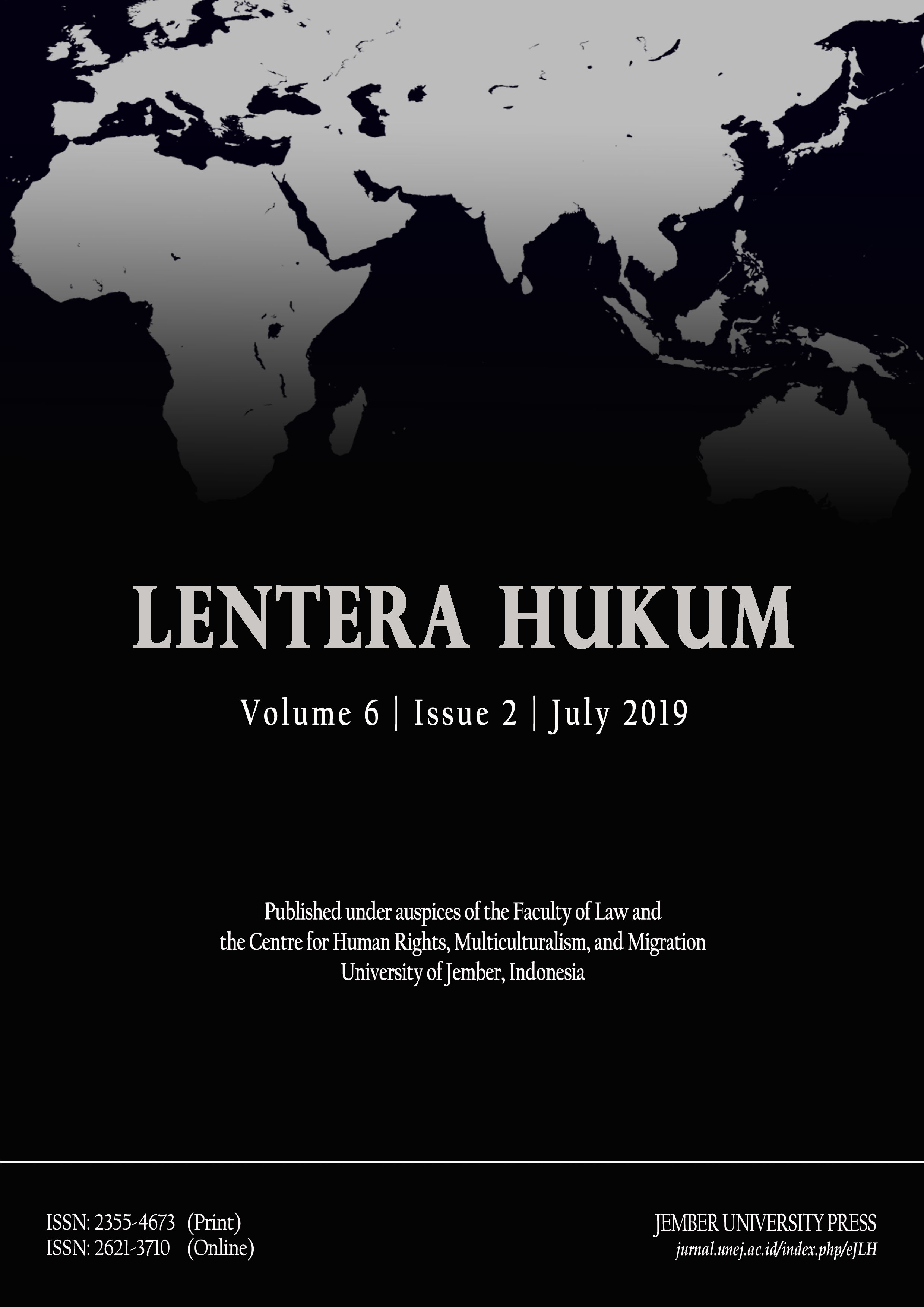Legal Responsibility on Errors of the Artificial Intelligence-based Robots
Abstract
Modern technology is developing rapidly. One branch of industrial technology that is particularly popular at the moment is artificial intelligence (AI) that facilitates society's daily life. On smartphones, artificial intelligence can be found in map applications, personal assistants, shopping websites, and various other applications. Saudi Arabia granted an AI-based robot named Sophia citizenship, and the Shibuya Mirai robot was granted a residence permit by Japan. AI-based technology is used every day and has become a common thing in various parts of the world; however, in Indonesia, legal regulations regarding AI do not yet exist. As a result, a legal vacuum has emerged. When a loss occurs, responsibility can be borne by various parties ranging from consumers, producers, third parties (such as robot trainers or shipping couriers) to the robot itself. Which party will be determined responsible depends upon how a country positions AI. If Indonesia follows in Saudi Arabia's footsteps, then the responsibility will be borne by the AI robot as a citizen. The robot will have the right to sue and be sued, to get the same position before the law, including other rights and obligations, enjoyed by human citizens. Artificial intelligence law-making is a very complicated process and will involve many parties. How Indonesia positions AI is very crucial, particularly in the event of harm or danger caused by AI systems. Various frameworks and concepts can be used, ranging from equating artificial intelligence to living beings, such as humans, pets, or ordinary products to creating entirely new concepts for a legal framework regulating AI-based systems.
Keywords: Artificial Intelligence, Responsibility, AI Law.
References
Beni Ahmad Saebani, et al., ‗Comparison of Civil Law‘, Bandung, CV Pustaka Setia.
H. Zaeni Asyhadie and Arief Rahman, ‗Introduction to Legal Studies‘, Jakarta, PT Raja Grafindo.
Delcker, Janosch. ―Europe Divided Over Robot Personhood‖, online:
Dvorsky, George. ―Experts Sign Open Letter Slamming Europe‘s Proposal to RecognizeRobots as Legal Person‖, online:
Eleveth, Rose. ―My Robot Bought Illegal Drugs‖, online:< http://www.bbc.com/future/story/20150721-my-robot-bought-illegal-drugs>
Geib, Claudia. ―Lawmakers Want You to Be Able to Sue Robots‖, online:https://futurism.com/robots-rights-eu-personhood
Indonesia. Constitution of Republic Indonesia.
Indonesia. Code of Civil Law
Leary, Kyree. ―The Verdict Is In: AI Outperforms Human Lawyers in Reviewing Legal Documents‖, online:
Robitzski, Dan. ―Five Experts Share What Scares Them the Most About AI‖,
online:
Techopedia. ―Artificial Intelligence (AI)‖, online:




